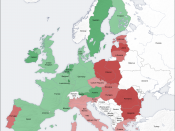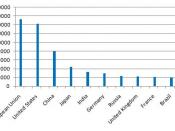Running Head: EURO ZONE CRISIS 1
EURO ZONE CRISIS 2
Euro Zone Crisis
Defining the Euro Zone Crisis
The Euro-zone crisis is a continuous financial crisis that has adversely influenced Euro-zone countries since late 2009. It is a mutual debt, banking and competitiveness crises of some of the European countries that form the European Common market. The reason for this crisis is that it had become difficult for some European country governments to refinance their debts without the help of private banks and financial institutions. Factors responsible for the European sovereign debt included the globalization of finance, soft borrowing terms which encouraged high risk lending and borrowing practices, international trade disharmony, the bursting of real estate bubbles, the 2008-2012 worldwide recession and the methods used by various countries to provide relief to banks and other large industries that were facing financial difficulties. The crisis actually began with the massive increase in savings that was available from fixed income securities.
This amount was around $70 trillion in 2007 which had increased from $36 trillion from 2000. This massive amount of money entered global markets into the hands investors who were looking for higher sources of return. The investors started investing in the international markets because they getting higher returns than those offered by U.S. Treasury bonds. This vast pool of money was too tempting for both lenders and borrowers to resist and policy regulations and control measures were conveniently overlooked. This vast amount of readily available money created financial bubble after bubble all over the world. When these bubbles burst the prices of properties, both commercial and housing took a nosedive. However, the returns on investment to global investors had to be repaid at full price which raised valid questions about the ability of governments for effective financial policies and the...


